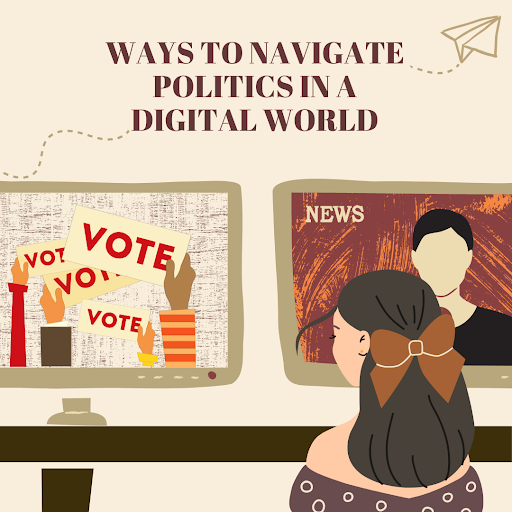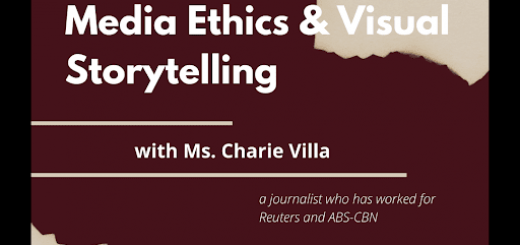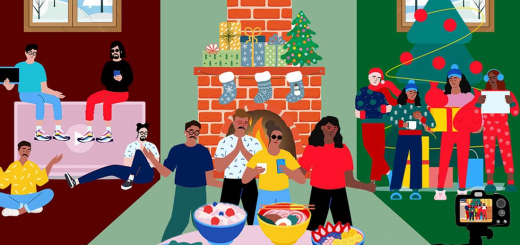Ways to Navigate Politics in a Digital World

The invention of smartphones and social media has welcomed a new digital world to society. Society’s connectivity has heightened the importance of legal rights such as freedom of speech and press in the digital environment. Undoubtedly, social media’s critical position nowadays plays a significant role in our lives with its ability to inspire political participation, boost public awareness, and transform political agendas.
Media literacy is the way of defining what media is. Media includes television shows, texts and emails, social media, promotions, video games, and internet content. With so many sources for news available today, media literacy can help consumers in identifying credible sources and filtering through the chaos to find the truth. For instance, we may detect fake news or understand why certain political candidates are on our feed more than others. People can also use media literacy to develop a good understanding of ideas, cultures, and perspectives that were previously unconsidered. It can help people in recognizing media bias and prejudice and how it may influence their impression of an incident or topic.
Political parties now have the power to reach a large population and influence them on significant matters that include plans for the country to elections, thanks to the media, so the capacity to think critically about posts on social media and digital news allows us to be informed users of these services. Understanding how media is formed from a distinctive perspective is a vital skill everyone must-have. An individual who has mastered media literacy abilities can interpret what they see on the media and fully comprehend how the writer is presenting it, read between the lines of social media postings for slant or propaganda, and recognize what type of commercial is on T.V. from a distance.
In the world of politics, social media strongly separates groups of users by producing an echo chamber effect. This segregation reinforces prejudice, and encourages people within a certain echo chamber to move their viewpoints farther from their original beliefs as they grow more insulated from outside information. This phenomena hardens ideas and produces a sense of “it’s us against them,” pushing one political group against the other and intensifying the political division. Today’s modern society is obsessed with and reliant on social media apps like Instagram and Facebook to Snapchat and Twitter for news. Society’s dependence on these platforms has infiltrated the boundaries that govern how we perceive and develop ideas, concepts, and opinions. From misleading information about the 2022 elections to one-sided data about our candidates, the lies spread on social media continuously confuse and mislead our beliefs. So how can we navigate politics in a digital world?
- Rule #1: Cross check sources
It is so important to do your research. If the majority of other news sites are reporting on the same story, it’s at least partially true. Read multiple stories on the same subject to see what sources are being used and where the differences lie. - Rule #2: Don’t believe everything you hear
As a generation that’s main source of information is on social media, cancel culture and fake news is everywhere on the internet. Many people would try to manipulate your views so you can agree with them even if what they’re saying is completely false. Make sure to always double check what you hear, even when it comes from your loved ones. - Rule #3: Keep your biases in check
Decipher whether the source is objective or subjective; determine the possible biases. Stay away from cognitive dissonance through confirmation biases, as open mindedness will allow the mass to see from multiple perspectives. - Rule #4: Do not trust unreliable sources such as third party sources
As much as possible, refer to primary sources like legal documents, eyewitness accounts, publications, statistical data, journals, and government reports for gathering information and research. It is important to critically evaluate sources because using credible sources makes you a more informed consumer. Think about unreliable sources as pollutants to your credibility, if you spread unreliable information, you could lose credibility and trust as a result.
These rules can save you in the long run as we are being immersed in millions of disinformation about politics, candidates, and elections. One thing for sure is that one good leader can turn things right-side up, and one bad leader can make the dark even darker by burying us deeper in poverty and corruption.





